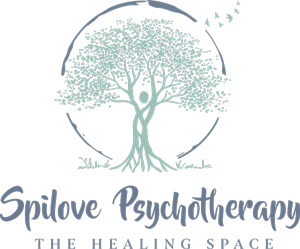Your breath is both a complicated and conveniently simple process that weaves together the communication between your body and mind. Linked to your nervous system, your breath has the capabilities of keeping you alive, soothing your body and mind and increasing energy. Your breath holds a wealth of resources for you. All you have to do is attend to it. Here’s some ways to access its usefulness.
Bryn Mawr Trauma Therapy: 3 Things to Consider When Searching for a Trauma Specialist
Do you want to learn skills or go deep?
Before searching for a trauma specialist in Bryn Mawr, Pennsylvania, you may want to consider what, exactly you are looking for. Do you want to learn skills to help you tolerate the trauma memories? Or would you prefer to engage in deeper therapeutic work to get underneath the trauma so that it can heal at the core?
Skills such as DBT Skills are extremely helpful for daily life.
DBT has 4 tenants: distress tolerance, interpersonal effectiveness, emotion regulation and mindfulness. These skills are essential when doing trauma work for PTSD and for many other difficulties such as anxiety, depression, anger management, eating disorders, self-harm and addiction.
If you’d prefer to get underneath the trauma, you will need a therapist who can help you with skills to stabilize and one who is able to help you heal at the root of the problem.
These skills are the building blocks that will allow you to be able to function and tolerate uncomfortable memories and emotions as you dive deeper into the healing work.
2. Which Therapeutic Models Do you Prefer?
When looking for a trauma specialist in Bryn Mawr, you’ll also want to take the time to find out the model or theory that the therapist uses to help navigate your therapy. If you’re looking for a safe space to process and talk things out make sure you find a counselor who is great at talk therapy. If you are looking for evidence based interventions to help you DO something with the traumatic material, you may want to investigate something like EMDR. If you want to work more from the body or a creative place, you may want to look for an art therapist, a yoga therapist or an experiential or psycho-dramatic therapist. Ideally, you’ll find a therapist who is able to choose a therapeutic tool from a large tool belt with many choices.
3. What is your commitment level to healing?
Successful therapy is mostly about your commitment to healing. Your counselor may ask you to consider abstaining from addictive substances, behaviors or eating disordered behaviors, especially while you’re engaged in trauma work. If you’re doing drugs, engaging in self harm or throwing up your food while you’re trying to heal from PTSD, it can side-track the process. Instead of taking the time in between sessions to allow your psyche to continue to process and digest the trauma, engaging in behaviors can numb the emotions and make it less likely that you will process and be ready for your next session. When you commit to your own healing process, it means you are willing to look at all aspects of your life and work towards shifting the things that no longer serve you.
Commitment to healing also means consistency.
If you engage in therapy every week, it creates synergistic momentum as opposed to dropping in only when you’re experiencing anxiety or depressive symptoms. Committing to consistent therapy will help you heal faster and more completely. What is your level of commitment to healing from a traumatic past?
If you’re looking for a trauma specialist near Bryn Mawr, Pennsylvania and need some helping finding the right person for you, please feel free to give us a call at 484-784-6244 for a free 15 minute initial consultation. We are happy to help you find the right trauma therapist for you.
Anger Management: 3 Ways to Channel Your Rage
Anger is a tricky emotion, especially in our society. We get messages that anger is “bad” and that we should never show it. While we certainly don’t want to take our anger out sideways on innocent bystanders and we don’t want to rage at people we have anger towards, anger isn’t a “bad” emotion to be pushed away and shamed for. It is healthy to acknowledge, honor and express our anger as long as we’re not hurting anyone in the process. Here are three ways to channel your anger:
1. Acknowledge:
Mindfully check in with your body and notice where the anger lives. You may notice that when you’re angry, you clench your jaw. Many of us store anger in our jaws. Perhaps when you get heated, you feel your face flush. Do you notice that you make a fist? Or are you more someone who feels ashamed for having anger, so it’s stuffed down and manifests itself in an upset stomach or feelings of self-loathing? However your anger manifests itself, the first step towards freedom is to acknowledge that you are, in fact, angry, even if you’re not quite sure why.
2. Honor:
Trying to put the judgment aside, see if you can think back to when you first started noticing the anger. Sometimes people believe that the key to anger management is to push the anger away and try to ignore it. But, I’m of the belief system that what we resist, persists. So if you want to get free of your rage and really learn anger management, try allowing yourself to be angry without doing anything about it, just noticing it in your body.
3. Expression:
Here are some skills you can try for expression of your anger. Take what you like and leave the rest:
- Journal about the anger
- Write a ‘do not send’ letter to the person or thing you’re angry at
- Sweat it out - Go for a run or engage in another form of physical exercise
- Vent to a friend, therapist or another safe person not involved in the situation
- Rip up a phone book
- Punch a punching bag
- Create some art expressing your anger
- Write out the story of what happened, then rewrite it with what you wish would have happened
- Practice progressive relaxation
- Learn assertive communication skills and directly address the issue with the person or situation
For more help with anger management, contact us here.
What else do you find helpful for anger management? Write your responses here:
5 Ways To Be A Better Listener: Communication Through DBT Skills
DBT for Communication
by Megan Delp, MFT
The Dialectical Behavioral Therapy (or DBT) tenant called Interpersonal Effectiveness teaches us how to be a more effective communicator through learned to be a better listener. We have always known that progress depends on the ability to communicate effectively. The most effective communication does not begin with what a person says, but how well they hear the person they are communicating with. Only by listening effectively can you respond appropriately inany situation.
Throughout all forms of communication (reading, seeing, speaking, listening), we spend 40% of that time listening. And yet, we get less training in listening than in any other kind of communication. All throughout childhood, we are taught how to speak, how to read, but very little time is spent on learning how to listen. Learning to listen is difficult, but worth it.
For instance:
You can not NOT communicate. We're communicating verbally or nonverbally all the time.
Whenever contact is made, some form of communication does occur.
The true meaning of something is not in the words we use, it's in how people interpret the words.
Yet the meanings cannot be transferred. We can't just put a computer file directly in someone's head. We can only send the words. So listening becomes a critical skill if we are going to fully understand the meaning someone is trying to send us.
We have the ability to listen in many different ways - it is important to be able to distinguish how we are approaching our communication so that we are prepared to handle it effectively.
The Five Listening Approaches are:
1. Appreciative:
People are more likely to listen if you feel inspired by what you are hearing or if you are enjoying yourself. You’re not necessarily interested in the details when you are using Appreciative Listening, rather you are more focused on the impression of the experience.
2. Empathic:
This style is often a sounding-board to others. A person would offer support to the person they are listening to. They focus specifically on the feelings revealed by the person they are listening to. If you are often approached by people who need to confide or vent about something, you will know that's your typical approach to listening! This style is much more focused on offering compassion.
3. Comprehensive:
A comprehensive listener can recognize key details between one message and another even when the speaker is less than organized. They can also recognize when someone doesn't understand what is being said and can re-explain clearly in their own words.
4. Discerning:
This approach of listening wants to get all the information and may take detailed notes. Distractions can be very disturbing when using this listening approach. An example would be when other people are talking in class and you are trying to get all the notes.
5. Evaluative:
When listening with an evaluative approach, the listener will not automatically accept what is being said as true just because an expert says it. If they disagree, they will simply stop listening. They will also be more doubtful if the speaker is too passionate about their topic. This approach can be helpful when evaluating something and making a decision about it.
It can be highly useful to adapt your listening approach to the needs of the situation. For example, if a close friend is sharing their difficulties with you, you would want to be empathic and not evaluative. You have probably had the experience of someone giving you unsolicited advice when you really just wanted them to empathize with you! The opposite can also be true. When you recognize the correct listening approach in any situation, and use the appropriate listening approach, you can build better relationships, make the correct decisions and use your interpersonal effectiveness skills. It all starts with learning how to listen!
Megan Delp, MFTI
Megan is a pre-licensed Marriage and Family Therapist specializing in couples counseling and individual therapy for those struggling with depression, anxiety and relationship issues. Megan practices with Spilove Psychotherapy in West Chester, Pennsylvania and on the Main Line of Philadelphia in Bryn Mawr. For more information or to schedule a free 15 minute phone consultation, contact us here.
"We cannot love others until we love ourselves" by Mikala Morrow
"We cannot love others until we love ourselves"
by Mikala Morrow, Villanova Graduate Counseling Intern
This saying has been a cliché statement that has been thrown around as a way to encourage self-care or even used as a convincing statement to those who find it hard to love themselves. What does this statement truly mean?
It means that someway, somehow we must find, within us, love. This must mean that love is an innate ability and we all possess the ability to love ourselves without the assistance of others.
Personally, I do not believe this to be true. Can we truly have an innate ability to love ourselves without any help from others? If we truly cannot love others until we love ourselves, we have to be able to love ourselves without help, right? Which comes first, the chicken or the egg? Which comes first, our innate ability to love? Or is love taught to us from our caretakers, partners, peers or a higher power?
What if, “We cannot love others until we love ourselves” becomes “We cannot love ourselves and others until we have been loved.” My argument is that in order to learn to love others, we must first be loved. We must learn how to love and what love is.
Imagine a child who is neglected by their caretaker. This child never truly learns love. Instead, to them, love means neglect. Later on in life when meeting new people, how will they love them? If all this older child has known is that love is neglectful, they too will neglect those that they love.
Compare the first child with someone who has a loving caretaker who has shown interest in who they are. This child will grow up with the idea that love is showing interest in others and will love in this way. These examples may not be true for all, but it is something to think about. The child in the first scenario may
learn somewhere how to truly love but this will not come as easily as the child in the second scenario.
We need to learn what love looks like towards us and we also need to learn how we love. We may love by giving others gifts or our time. We may show our love through compliments or by offering a shoulder to cry on. We all have a unique way to show love. In order to practice our ways of loving, we need people around us to accept our love. If our unique way of showing love is rejected, we learn that we are not good at loving, or our way of loving is wrong.
Let’s say you show love with your time but your partner becomes annoyed and tells you they just want space. Your way of loving has been pushed away. We need other people around us to affirm the way we love. While the statement, “We cannot love others until we love ourselves” has a good message at the core, it can be damaging for those who have never learned how to love themselves.
We all need love whether it is from other humans on earth (maybe even from a pet) or a supernatural love. Then we can truly love others’ authentically and comfortably.
Mikala has an intensely compassionate and unique way of connecting with you to help you identify and express your feelings and your deepest sense of self. She is persistent and encouraging in the face of hopelessness and despair. She especially loves working with women to provide tools to alleviate anxiety and depression. Mikala has a wealth of experience and is skilled in the mental health field working with domestic violence, food & body issues and addiction. If you're struggling to tolerate your emotions and you're looking for a guide to help you get to know yourself better, give her a call now at 570-412-4516.
The 5 Secrets to Quit Binging
At times, all of us have eaten a bit, or a lot more than is comfortable in our bodies. Holidays, celebrations or sometimes mindless eating in front of the TV can leave us feeling overly full. For some, this way of eating is more common and happens more frequently than we’d like. The new DSM-V, the Psychiatric Association’s manual on diagnosis, has created a diagnosis under the eating disorder umbrella called Binge Eating Disorder or BED. Whether you meet the criteria for this disorder, for bulimia, anorexia, or you just find yourself overly stuffed at times, these tools can be helpful:
1. Notice what types of foods you’re binging on and write them down.
It helps to look at your behavioral patterns. Some people find themselves eating excessive sweets, some are more geared towards fats or starches. Some people with emotional eating tendencies excessively eat any kind of meal including vegetables. See if you can find a pattern in your binge choices.
2. Notice what you DON’T binge on.
Are there any types of foods that you’d never consider in a binge or never feel the need to over-eat? In a recent session, a client was relaying the guilt and shame he felt after a binge. He reported that he doesn’t usually allow pastries in the house, but was feeling strong recently and thought it’d be okay. He found himself finishing off the pastries he had in one sitting. Upon further investigation into what foods he was allowing himself to eat regularly, the client determined that he felt very satisfied when he ate waffles and allowed himself to eat waffles multiple times per week. I asked him if he ever binges on waffles. He was shocked when he thought about it and said that – no – he never binges on waffles. Ok, great, so there’s no waffle binging going on, but how does that help? Follow me here.
3. Take a look at what you ‘allow’ yourself to eat regularly.
What foods do you consider safe? In an attempt to be healthy, lose weight, or just get control over your food choices, you may be very rigid or restrictive about what you allow yourself to eat on a regular basis. Perhaps your choices look benign enough like chicken and veggies multiple times per week. Write down what you’ve eaten over the past 3 days to 1 week or track your food for a week. What do you notice?
4. What is missing from your regular eating habits?
Take those same meal journals and notice what you don’t have there. If we consider all the food groups: protein, fat, starch, veggies, fruits and dairy – are there any food groups missing? Are there lots of repeated meals without much variety?
Now I know this might seem completely insane and a bit scary, but HERE’S THE KEY to quit binging. Ready?
5. Allow yourself to eat the foods you binge on.
Try adding a portion or 2 of the foods you don’t allow yourself to eat and some of the most common foods you binge on to your regular meal schedule. I know this might seem counter-intuitive. Our society tells us to resist, have discipline, diet harder, avoid sugars and carbs and fats and this may be the only voice you’ve ever heard that encourages these things, but just give it a try for a month or even a week and see what happens. If you are on the anti-carb kick, but then you find yourself binging on carbs, try adding a normal amount of carbs to each meal and see what your body craves after a while.
Here’s the rub – We are creatures of desire.
Food is part of life! It’s nourishing and delicious and sensual. When we restrict ourselves from eating foods we love, we may lose weight in the short run, but this does not happen without consequence. Our animalistic nature, our Id, it craves pleasure and passion and vigor. If we force ourselves to live inside a rigid box of rules around food and body, we will always desire to break free and stepping outside of that box causes immense shame and fear. I am not telling you to overeat or teaching you how to binge differently, but what I am suggesting is that you try to take the power out of the foods that haunt you.
If you regularly binge on entire cartons of ice cream, see what happens when you have a cup every night for a week. What emotions come up when you eat it? Can you journal about them and bring them into your therapist? What do you find yourself craving after that week of glorious freedom with ice cream?
If you live near The Main Line of Philadelphia or West Chester and want to learn more about binging and how to quit, or you’re not sure where to find support for your feelings around food, you’re not alone. Please feel free to contact me at 610.314.8402 – I’d be happy to help you find support.
How to Find an Expert on PTSD & Trauma for Therapy on The Main Line of Philadelphia
The Main Line of Philadelphia
is a very special place to live. If you already live here, you know how unique this place is - if you don't live here, you are in for quite a treat. The suburban area to the west of Philadelphia has been referred to as The Main Line because of the main train line that connects Philadelphia to all the beautiful towns built up along the train tracks: Lower Merion includes Overbrook, Merion, Bala Cynwyd, Wynnewood, Narberth, Ardmore, Bryn Mawr and Rosemont. Further out we have Radnor, Villanova, Wayne, St. Davids, Berwyn, Paoli, Malvern, Exton and Frazier. Each town is unique and has it’s own spin on charm.
Finding an expert trauma therapist on the Main Line of Philadelphia
seems harder than it should be. With Bryn Mawr's Graduate School of Social Work close by, Villanova University, Rosemont College, Saint Joseph's University, Widener, Immaculata, Cabrini, Ursinus and not to mention University of Pennsylvania, Swarthmore and LaSalle, we have so many talented therapists, social workers and counselors. So, how do you find the therapist who knows just how to help you manage your post-traumatic stress symptoms? How do you find the counselor you can click with and trust to guide you through an evidence-based method of healing your past traumatic memories? Choosing a therapist is a very personal decision. You can have three great therapists, but if you don’t feel safe with them, what’s the point? If you are looking for a counselor, psychologist, life coach or therapist - I'd like to help you find someone who can help.
Here are some ways to search
Educate Yourself About Methods that Work for PTSD
When you have PTSD, there are only a few ways of treating your symptoms that have been studied and proven to effectively reduce or eliminate symptoms. Those nightmares you’ve been dealing with, the heightened startle response, hypervigilance, and avoidance of triggering situations – those are the things that get in the way of your life. These are the issues you’ll want to be sure your therapist knows how to help you manage and heal, not just talk about. One of the top researched methods for eliminating these symptoms is a method called Eye Movement Desensitization and Reprocessing (EMDR).
EMDR has been studied and proven as an evidence-based treatment method. You can learn more about EMDR and how it works here. Here is a short explanation: when we have traumatic memories, the memories tend to get stuck on one side of the brain and our body tries to heal it by re-playing it over and over, but it stays stuck. EMDR is a technique that stimulates each side of the body alternately while the patient processes the traumatic material. This technique helps the brain move the traumatic memory from one side of the body through to be able to process it so it’s not stuck on a loop any longer. You can find therapists who are trained and certified to utilize EMDR by going on the EMDRIA.org website or asking people who know therapists in the area. Think about asking friends who have or know therapists, your doctor or someone at your school. Therapists that come highly recommended and are known to work with PTSD through EMDR methods are a good way to make sure they have a good reputation.
Type into Google your town and the issue you are looking for help with. For example, "Bryn Mawr and PTSD" or "Rosemont and Trauma" and see what comes up. In the top listings that come up in your search, you will hopefully see some links to therapists that specialize in your particular need and are trained in EMDR.
Psychology Today
What you will most likely see is a result that links to a Psychology Today profile for therapists in your area that have indicated these specialties. Psychology Today is a great site that is most commonly used for therapists to post their profiles and for clients to find a therapist nearby. It’s very helpful that you can refine your search by specialty. The unfortunate thing is that therapists can indicate that we specialize in as many topics as we'd like. Although a therapist might indicate that they specialize in PTSD, if it's really something we know a lot about, we obtain specialized training in evidence-based methods specifically for PTSD and we will often note areas we are trained in on our websites, so don’t stop with Psychology Today, make sure you read through the clinician’s website as well.
Websites
Check out the websites of potential therapists. If you are looking for help with flashbacks and the website you are visiting talks a bunch about flashbacks, that's a great sign! If you are looking for help with a heightened startle response and you're on a website that doesn't mention this symptom, you might want to keep looking.
Phone consultation
Some therapists offer a free 15-minue phone consultation which is a great service and an excellent opportunity for you to interview your potential trauma therapist. You are going to be spending a good amount of time and finances on effective therapy, it is very important that you find the right fit for you.
Here are some questions to help you navigate your phone consultation:
1. What methods do you use to treat PTSD?
2. How do you help your clients manage overwhelming emotions while they work on traumatic memories?
3. What do you do to treat the symptoms versus the root of the problem?
4. How long does it usually take before your clients start to see relief from their symptoms?
5. How effective are the methods you use?
6. Given my specific set of symptoms and needs, do you think you can help me and have you helped many others’ with my specific symptoms before?
In an ideal world, you would find a therapist who has special training and expertise in the methods that show the best results and someone who has tons of experience working with eating disorders and trauma. Unfortunately, this is not an ideal world. So you'll need to search a bit further. You'll be searching for someone that you connect with, who you feel comfortable talking to, someone who will be honest with you and you'll know you can be honest with them.
I hope this helps you in your search for the right therapist on the Main Line of Philadelphia. If you want some tools to help now, sign up for my newsletter to get some tips and tools for managing PTSD and eating disorders. If you are still feeling stuck, feel free to call me at 610.314.8402 for a free 15 minute phone consultation. I am available to listen to what's happening and help direct you to the right person. If you are looking for help with eating disorders or PTSD, you can read more about how I can help here.

























